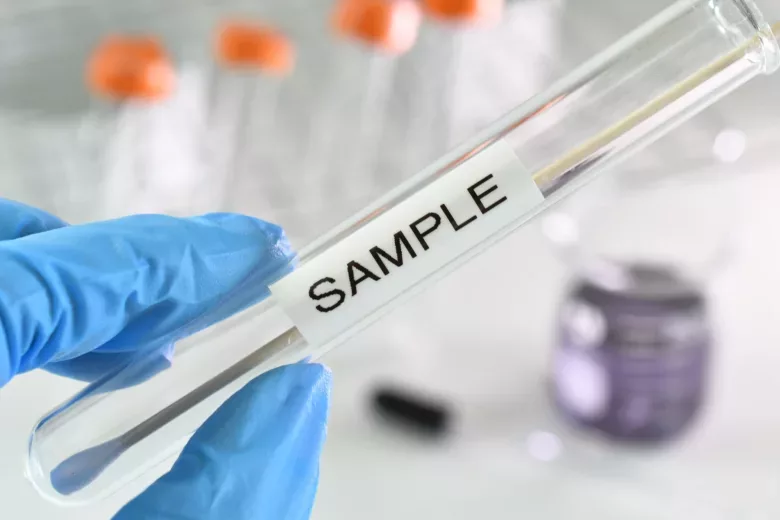Antibiotics are essential in the treatment of UTIs and are often prescribed as a part of treatment after UTI testing. When bacteria, often from the digestive tract, pass through the urethra and grow in the urinary system, it can result in UTIs. These bacteria can be successfully eradicated by antibiotics, which also lessen the intensity of UTI symptoms. Antibiotics assist in clearing the infection from the urinary tract, relieving pain and suffering. It also aids in preventing the infection from spreading to the kidneys or other organs.
Furthermore, by entirely eliminating the bacteria and lowering the risk of reinfection, antibiotics help prevent recurring UTIs. However, selecting antibiotics relies on the kind of bacteria that is infecting you and how susceptible it is to various medicines. To guarantee successful treatment and reduce the potential issues linked to untreated UTIs, a healthcare expert’s accurate diagnosis and antibiotic prescription is crucial.
What causes Urinary Tract Infections?
The primary cause of urinary tract infections (UTIs) is bacteria getting into the urine system. Most UTI cases are brought on by:
- Bacteria particularly Escherichia coli (E. coli), Klebsiella, Proteus, or Staphylococcus are known to result in UTIs.
- Infection can occur in the bladder when bacteria from the digestive system pass via the urethra and up to the bladder.
- Sexual activity increases the risk of UTIs by introducing germs into the urinary system.
- Bacteria can enter the urinary system through urinary catheterization, a technique that involves inserting a tube into the bladder.
- Vesicoureteral Reflux and other urinary tract blockages are examples of anatomical anomalies that can cause UTIs.
- Poor personal hygiene practices, such as cleaning the urethra from back to front after using the loo, might spread germs there.
- UTI susceptibility can be increased by immune system suppression brought on by diseases like diabetes, HIV/AIDS, or certain drugs.
- Women who are going through hormonal changes, such as pregnancy or menopause, may be more susceptible to UTIs.
- People who have certain urogenital anomalies from birth may be more prone to getting UTIs.
Are antibiotics effective against fighting UTIs?
Antibiotics are often used to treat urinary tract infections (UTIs) because they are efficient in killing the bacteria that cause the illness. However, not all UTIs require antibiotics, and the need for antibiotic therapy is determined by a number of criteria. Antibiotics are typically the recommended therapy for simple UTIs, such as those in healthy adults with no underlying health issues. They aid in the eradication of germs, the relief of symptoms, and the prevention of illness spread or recurrence.
However, antibiotics may not be essential in other circumstances, such as mild UTIs or asymptomatic bacteriuria (the presence of UTI bacteria in the urine with the lack of UTI symptoms). Mild UTIs may cure on their own with adequate water intake and self-care. Even though asymptomatic bacteriuria seldom requires treatment, it does not rule out particular risk factors altogether.
Which antibiotics help cure UTIs?
Numerous antibiotics are often used to treat urinary tract infections (UTIs). The type of bacteria causing the illness, how susceptible it is to various treatments, and the patient’s medical history all play a role in which antibiotic should be used. The following antibiotics are routinely given for the treatment of UTIs:
- Trimethoprim/sulfamethoxazole (Bactrim): This antibiotic combination is frequently used as the initial course of therapy for simple cases of UTI.
- Nitrofurantoin (Macrobid, Macrodantin): Nitrofurantoin is highly effective against lower urinary tract infections and many kinds of bacteria that cause UTIs.
- Ciprofloxacin (Cipro): Ciprofloxacin is a broad-spectrum antibiotic that works well against a variety of bacteria that cause UTIs. If all other antibiotics fail in the case of complex UTIs, it is frequently utilized.
- Levofloxacin (Levaquin): Levofloxacin is another broad-spectrum antibiotic used to treat complex UTIs, such as pyelonephritis.
- Augmentin (Amoxicillin/Clavulanate): The combination antibiotic Augmentin (Amoxicillin/Clavulanate) is occasionally recommended for UTIs, particularly when there is possible antibiotic resistance.
Note that the particular antibiotic chosen may differ depending on several circumstances, and the prescription ought issued by a healthcare provider after a careful review of the UTI case.
Affordable Rapid Testing, AZ is your go-to for all UTI testing needs
Because of their great services and low prices, Affordable Rapid Testing, AZ is the best choice for all of your UTI testing needs. They provide fast testing with findings in minutes, guaranteeing early diagnosis and treatment. The ease of access they provide enables quick access to testing, saving precious time and effort. Furthermore, their services are reasonably priced, are highly dependable with a guarantee of accuracy when it comes to results. With Affordable Rapid Testing, you can be confident that your UTI testing requirements will be addressed effectively, swiftly, and affordably. Learn more about their services in their official website.


